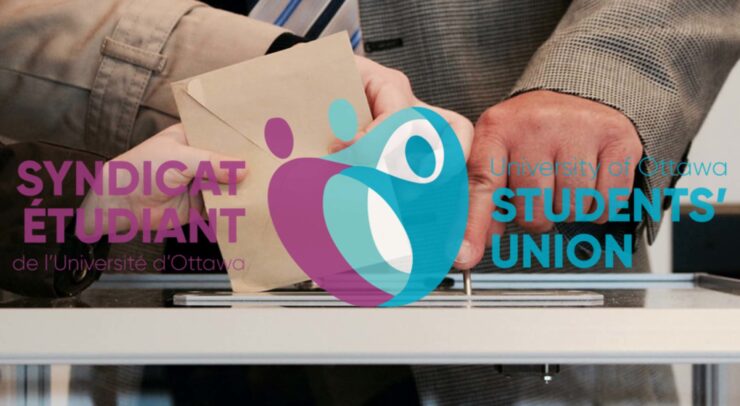Gulliver pledges FGA will not last until the wee hours of the morning this year
The University of Ottawa Students’ Union’s Fall General Assembly (FGA) is set to be held on Monday, Nov. 15 at 7 p.m. The FGA is UOSU members’ (all undergraduate students) opportunity to have their say in policies the union adopts over the next academic year.
The event will be held over Zoom, as was the case for last year’s FGA, which lasted for 7 hours and adjourned at 2 a.m.
UOSU president Tim Gulliver pledged to keep this year’s general assembly to a reasonable time in an interview with the Fulcrum.
“We have heard from members that the length of last year’s meeting was not ideal. I fully understand that perspective, I wasn’t a huge fan of it,” admitted Gulliver.
“So, I’m working with the chair of the board, to put a time stamp on the debate, and a time stamp on motions. The [F]GA can extend any time stamp it wishes but we’ll have shorter conventions and shorter debates be the norm as opposed to the exception will help us get there.”
Ahead of the general assembly undergraduate, students are being invited to submit motions for approval. These motions can entail amendments or suggestions to anything pertaining to actions or policies under the purview of the UOSU.
Motions brought to the 2020 FGA included: a motion calling for the reduction of ancillary tuition fees during the COVID-19 pandemic, a motion for a smoke-free campus, and a motion for the creation of an independent Indigenous law student government.
Taylor Léveillé submitted the motion for UOSU to advocate for a smoke-free campus at last year’s FGA, and told the Fulcrum about the experience of her motion being debated, saying “I submitted the motion [because] health is a topic that is very important to me and a smoke-free campus would be a step in the right direction for the University. I thought bringing this matter up with the [UOSU] would help to start a conversation around this topic and potentially create change on our campus.”
“I communicated with [UOSU] and they advised me to submit the motion through the link I had received in my student inbox,” Léveillé said. “I received a template from the person at UOSU and was able to [add] in the information necessary to complete the motion and submit it to UOSU via email.”
Those interested in submitting a motion for this year’s FGA can expect help from UOSU with translation and editing. “We’re not going to change what you’re submitting your motion for, we are just here to make sure that it fits with the proper format and all of that. So we’re just here to guide as much as we can and make student voices heard.”
Gulliver noted that only two motions had been submitted at the time of his interview with the Fulcrum, and encouraged students to reach out if they are unsure of how to start the process of writing and submitting motions.
For those who might not have any motions to submit, attendance is still an important way to get involved, said Gulliver. “The General Assembly is an opportunity for the members of the UOSU to get involved [and] make their voices heard. You can direct all the elected representatives of the union to move in a certain direction and adopt certain stances, or policies, the GA can also pass constitutional amendments as well.”
“Students pay for the Union. This is their Union” said Gulliver. “The UOSU is not me or the executive — it is all of us. Everyone who pays for the UOSU is the UOSU and obviously, I’d love to do some more work on behalf of students after receiving input from the UOSU membership. So, if you care about where your money is going, if you have ideas about how to change [the U of O] for the better, this is a fantastic opportunity to make your voices heard.”
In order for the FGA to run the meeting will have to meet a quorum of 75 people. This count will see those operating as proxies as multiple people counted towards the quorum, however, there must be at least 50 people present at the virtual meeting.
Gulliver explained why students might choose to send a friend as a proxy, given the meeting’s time and potential overlap with individual class schedules, adding “the agenda will be set ahead of time so people who are assigning proxies on their behalf, will still be able to give instructions to the person who’s representing them.”
“I think it is important to fight for things we believe in and submitting a motion and debating your position is a great step towards that,” reflected Léveillé to the Fulcrum. “I believe it is extremely important for students to be a part of this event as the motions directly affect them and their university experience.”
For more information on proxy assigning, attendance or submitting a motion, students can visit UOSU’s General assembly page here.





